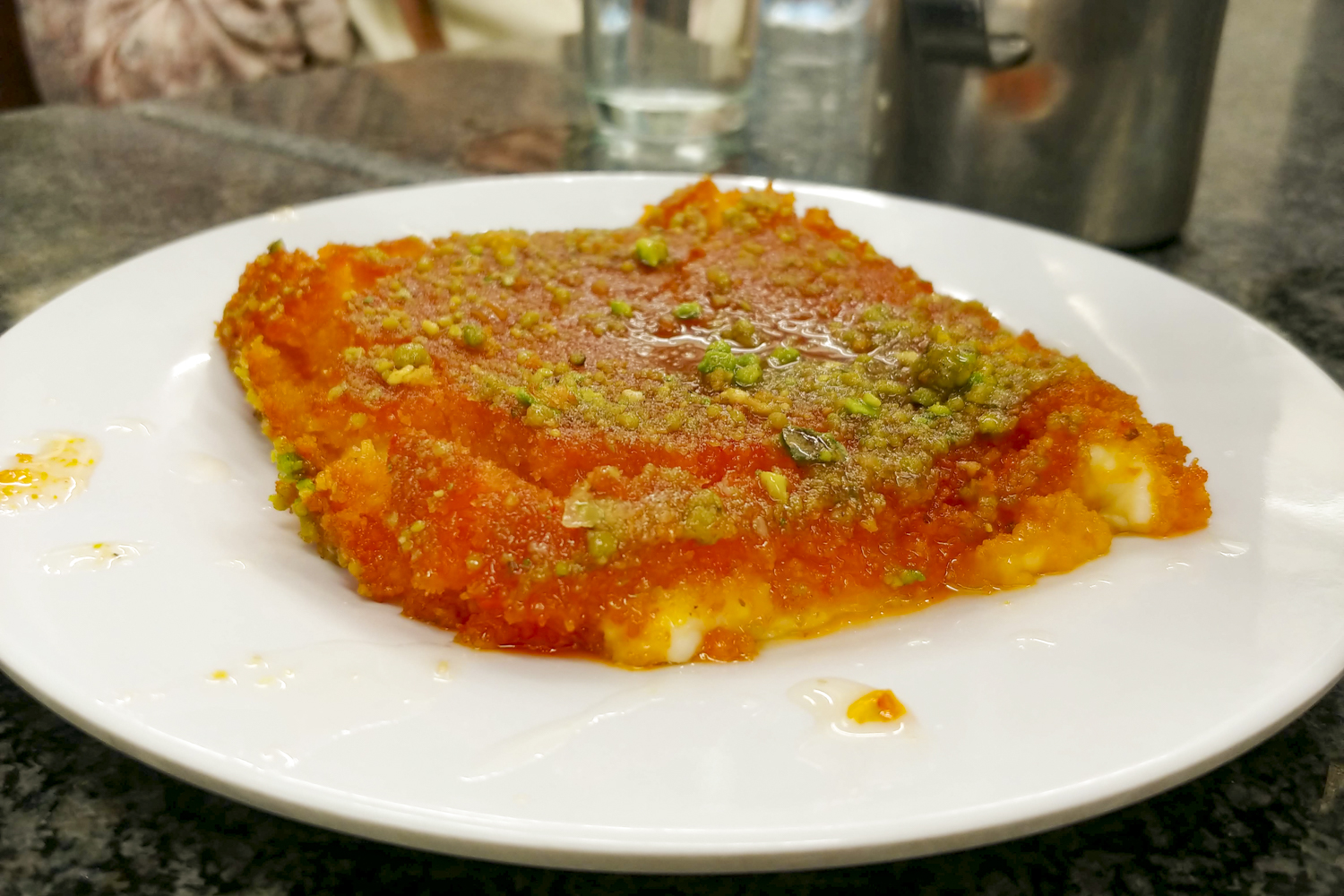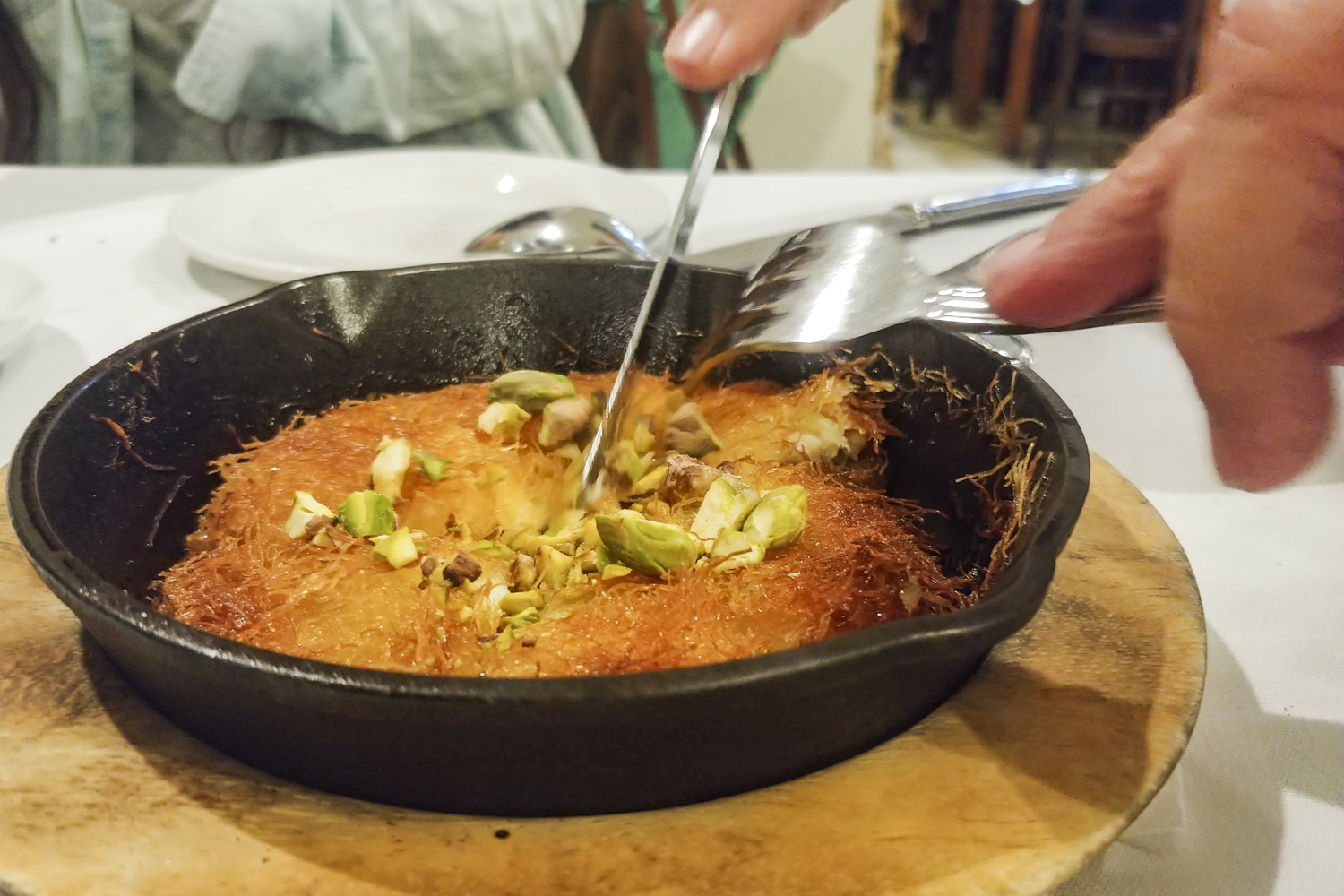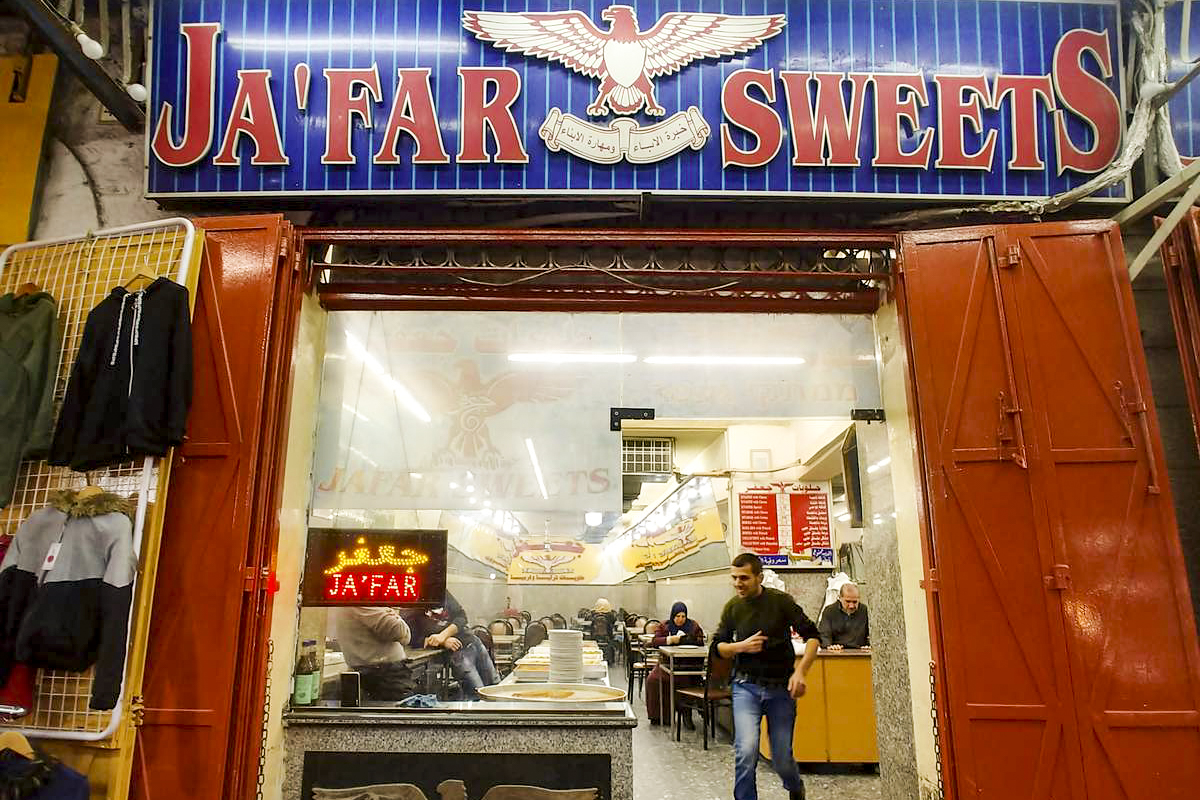There’s a reason Michael Solomonov — the James Beard Award-winning chef-owner of Philadelphia’s Zahav restaurant — dedicated an entire 98-minute Netflix documentary to trying to define Israeli cuisine. Ask a dozen Israelis, and you’ll hear at least a dozen different answers, ranging from “Well … it depends,” to a definitive “There is no ‘Israeli cuisine.’” Perhaps the only answer is, much like your Facebook relationship status: “It’s complicated.”
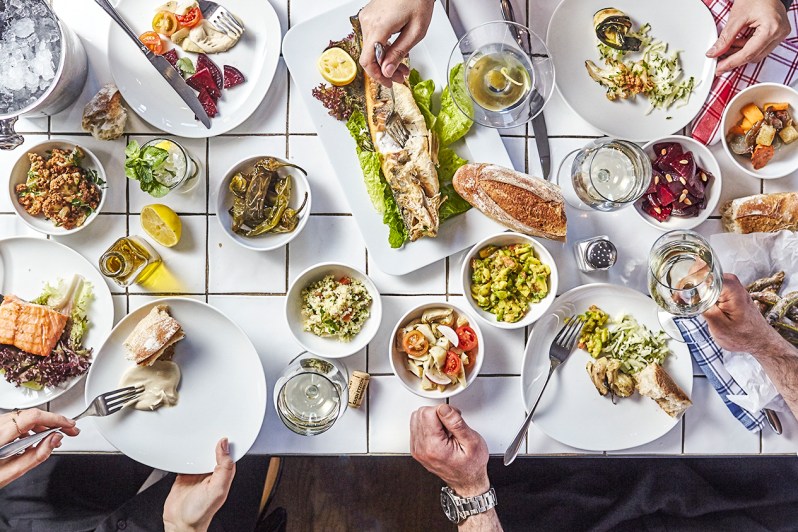
Throughout its millennia-long history, the area that is modern-day Israel has been inhabited, traversed, conquered, re-conquered, and fought over by countless peoples. It’s a melting pot of European, Asian, and Middle Eastern influences from Turkey, Greece, Palestine, Morocco, Egypt, Syria, Lebanon, the Balkans, and more. Add to that the fact that, at barely 70 years old, Israel may be too young to even claim a distinct cuisine.
So, any list of “Israeli food” is likely to be less about “food born in Israel” and more a roundup of “the staple foods that travelers should look for when in Israel.” We won’t pretend to tell you that Israel lays claim to inventing any of these foods. Wars have been fought over less. But, these are the staple dishes that broadly define modern Israeli cuisine.
Hummus
No food is more iconic of modern Israeli culture than hummus (more accurately pronounced “WHO-moose”). The chickpea in general and hummus, in particular, enjoy an almost religious status throughout the country. But, while most State-siders think of hummus as a mere “dip,” Israelis consider it a meal unto itself. Trust us: this is reason enough to brave the 12-hour journey to get there.
While Israel might be a tiny country (roughly the size of New Jersey), hummus recipes vary by region, village, and city. One thing they have in common, however, is they’re all much different than the processed commercial chickpea spread found in the US. The base typically consists of chickpeas, lemon juice, salt, cumin, and an absurd amount of tahini (better known in Israel as tehina). After that, the sky’s the limit.
Jerusalem hummus is often served with hot, spiced ground beef and pine nuts, while many shops offer hard-boiled eggs, whole fried chickpeas, sliced garlic, and fūl (a staple dish of Egypt consisting of fava beans, cumin, lemon juice, and a mix of herbs, spices, and chopped vegetables) as toppings. While you might be tempted to eat it with a spoon, most restaurants provide natural dipping instruments like onion slices, cornichons, and a mountain of pita wedges.
Falafel
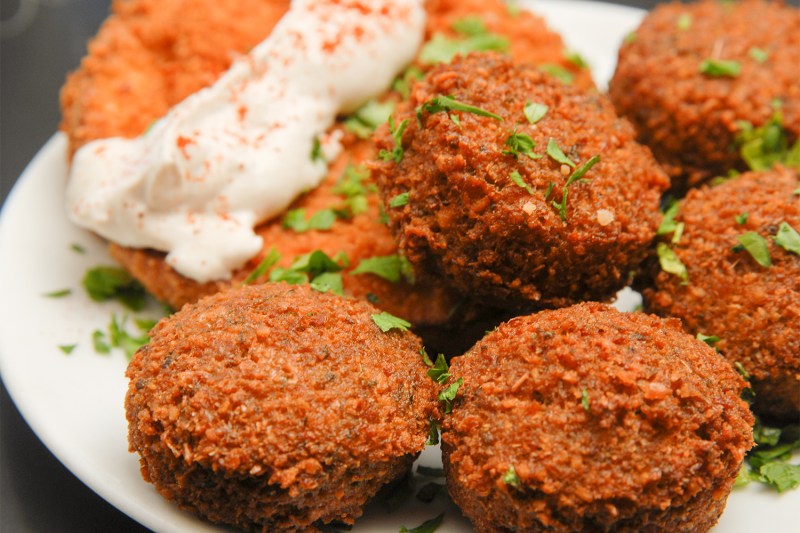
No matter where you are in Israel, falafel is the undisputed king of street food. These deep-fried chickpea balls are further proof that the chickpea reigns supreme here. You’ll find falafel served on its own, in a pita, or as a sidecar to a bowl of hummus (more chickpeas) or an Israeli salad. Much like Reese’s peanut butter cups, there’s no wrong way to eat it.
Shawarma
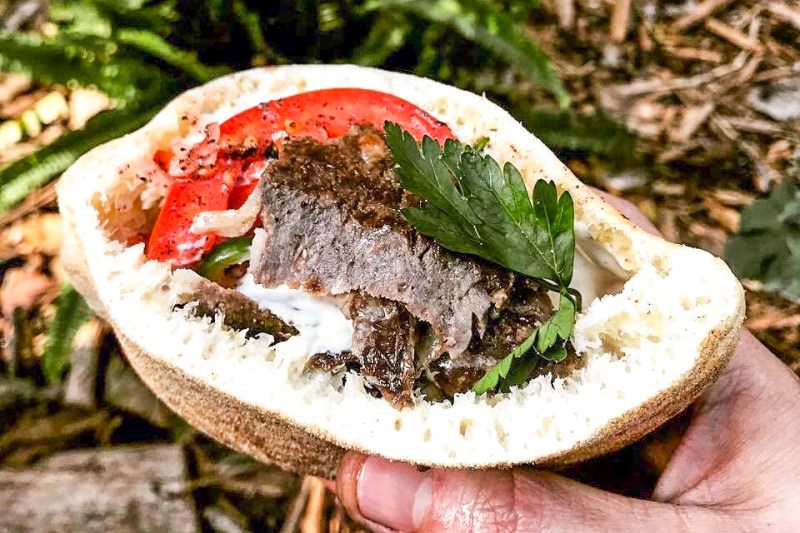
After a decade out of the spotlight, shawarma is slowly returning to reclaim its throne as “the queen of Israeli street food.” For purists, veal or lamb are the only way to fly. But, new stands are popping up, particularly in Tel Aviv (the de facto beacon of up-and-coming Israeli cuisine), that lean heavily on turkey. No matter the meat, the panoply of available toppings is no doubt familiar to most Westerners: usually hummus, pickles, grilled hot peppers, fried eggplant, pickled mangoes, olives, and — the coup de grâce — oil-drenched French fries. It’s all wrapped in hot, fresh pita or laffa.
Shakshuka
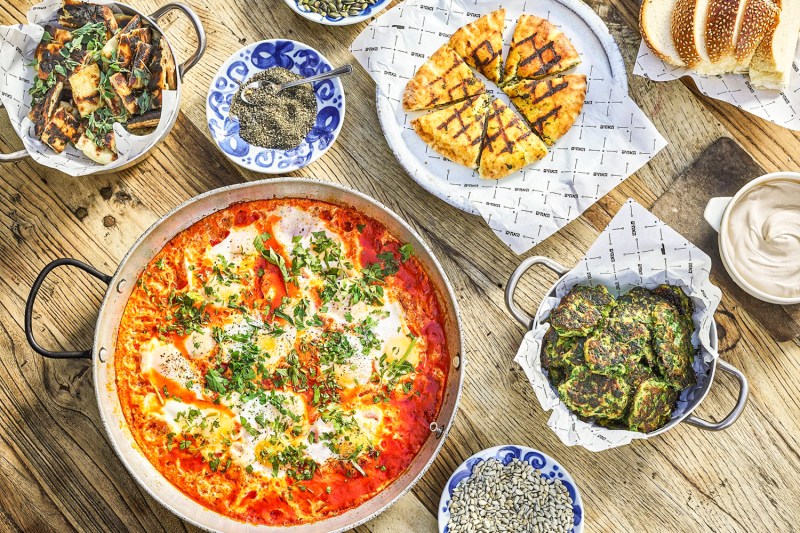
For Americans, shakshuka might seem like the pinnacle of brinner (that would be “breakfast for dinner”). In Israel, it’s a traditional breakfast and sometimes lunch food. The simple North African dish consists of eggs cooked on a thick bed of tomato sauce spiced with paprika, cumin, and cayenne pepper. It’s all prepared in a single pan, finished in the oven, then topped with fresh herbs and served piping hot in the skillet. It’s bright, bold, and a quintessential part of modern Israeli cuisine.
Knafeh
Most Israelis will concede that knafeh (sometimes kanafeh) is an Arab dessert. But, the country has proudly adopted it as part of its modern-day food culture. You’ll find it in virtually every souk (market) and restaurant worth visiting. Throughout the country, the recipes are surprisingly similar, consisting of a thin, noodle-like pastry base and/or semolina — all soaked in a dense, sweet sugar syrup that is then topped with layers of cheese and chopped almonds or pistachios. Orange or rose water is usually added to the mix to give it a unique flavor.
The Israeli Breakfast
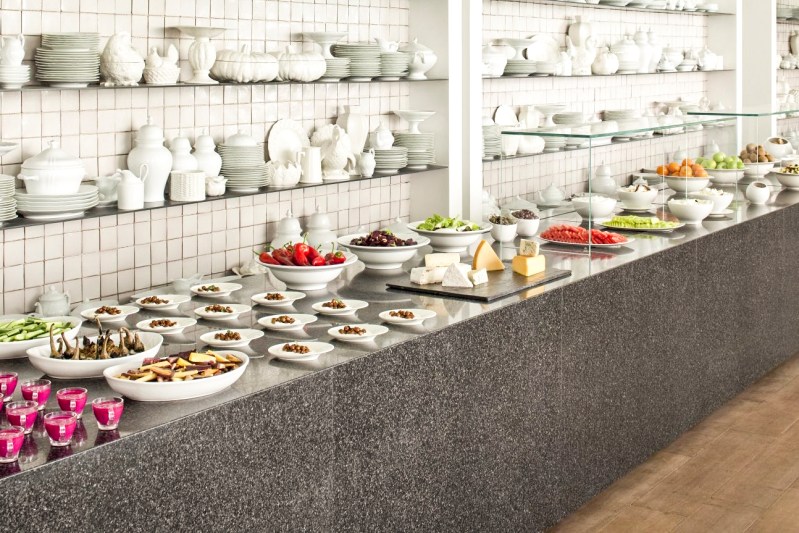
The full Israeli breakfast does not consist of just one food. It’s rather a distinct and comprehensive meal that’s so famous, so over-the-top, that it deserves its own call-out here. No one takes the phrase “breakfast is the most important meal of the day” more seriously than Israelis. What that means to foreign travelers is that, no matter how cheap of a hotel you find yourself in, you will be treated each morning to a breakfast spread worthy of a king.
Options vary widely, but the list typically includes, among other things: an omelet station, Israeli salad, a large spread of hard and soft cheeses, olives, fresh-baked bread and pastries, smoked or pickled fish, hummus, baba ghanoush, labneh (thick, strained yogurt), fruit juices, and most importantly shakshuka. Plus lots and lots of tahini.

